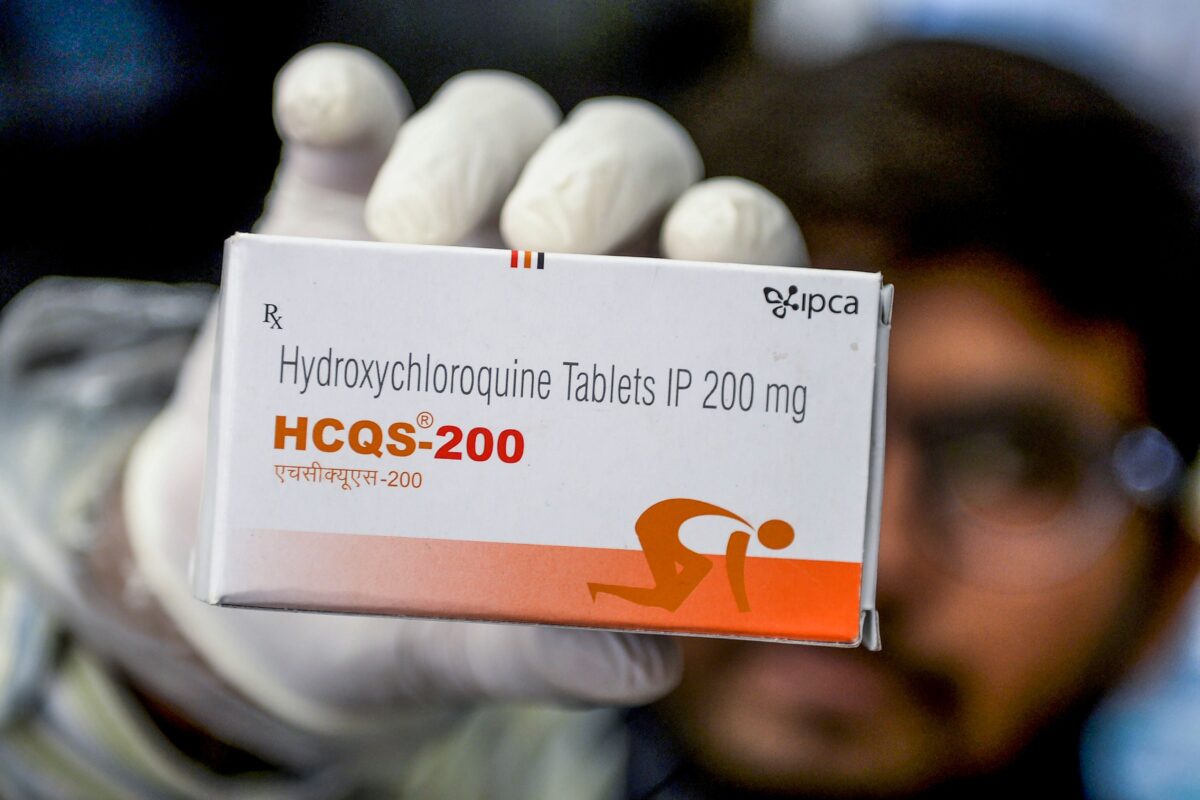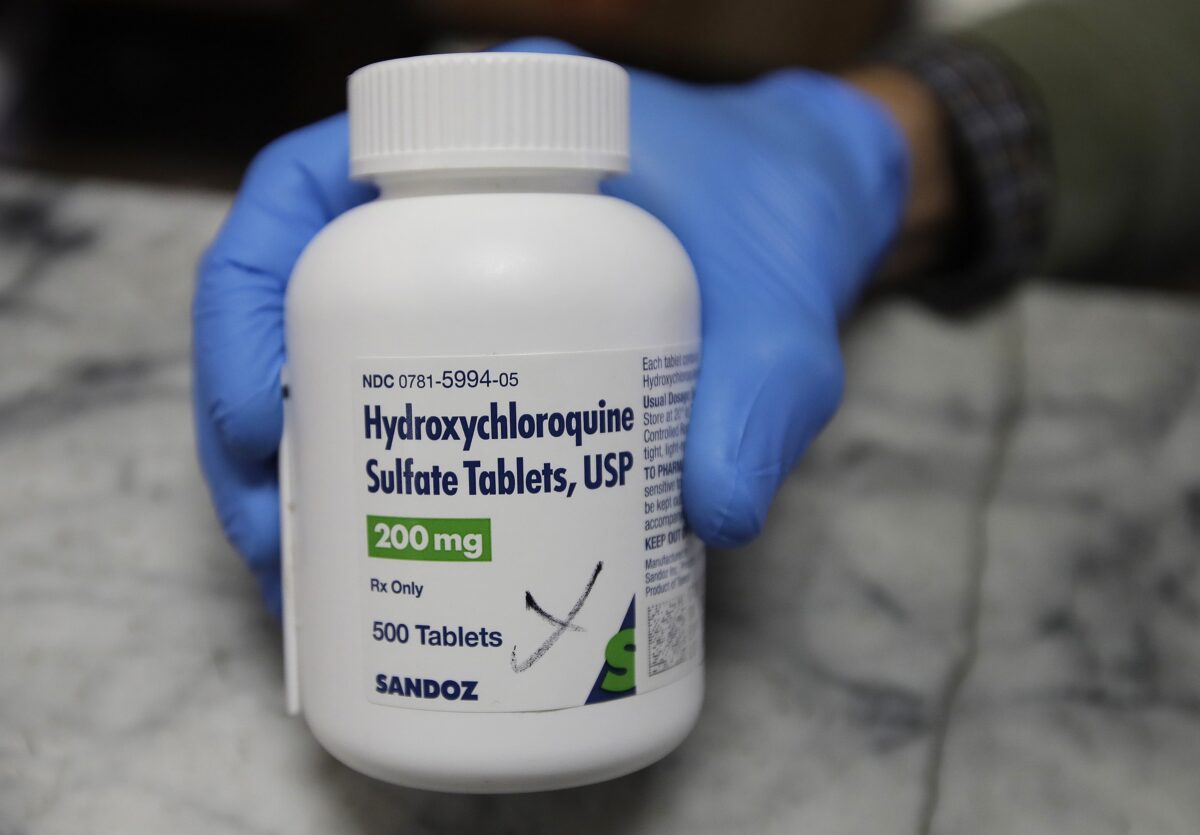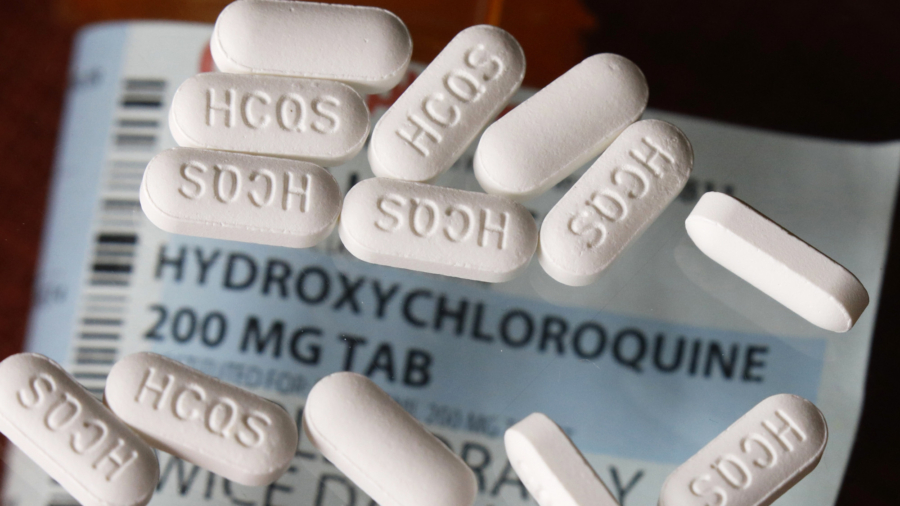National Institute of Health (NIH) has halted a clinical trial to study the “safety and effectiveness” of Hydroxychloroquine for treating the CCP virus in adults.
In a statement on June 20, the NIH said, the “[s]tudy shows treatment does no harm, but provides no benefit.”
The drug, Hydroxychloroquine is used in the treatment of malaria and arthritis and has shown antiviral activity in various studies. Because of its safe profile at appropriate doses in such studies, it was hypothesized that it can be useful for CCP (Chinese Communist Party) virus treatment.
However, a data and safety monitoring board (DSMB) of the NIH that met on Friday, decided after four interim analyses that “while there was no harm, the study drug was very unlikely to be beneficial to hospitalized patients with COVID-19.”
The trial was happening at the Prevention and Early Treatment of Acute Lung Injury (PETAL) Clinical Trials Network of the National Heart, Lung, and Blood Institute (NHLBI), and the first participants were enrolled in April.

DSMB recommended to the NHLBI to stop the trial immediately, according to the Saturday’s release.
“The blinded, placebo-controlled randomized clinical trial aimed to enroll more than 500 adults who are currently hospitalized with COVID-19 or in an emergency department with anticipated hospitalization. More than 470 were enrolled at the time of study’s closure,” said NIH.
Participants were “randomly assigned to receive hydroxychloroquine 400 mg twice daily for two doses (day one), then 200 mg twice daily for the subsequent eight doses (days two to five) or a placebo twice daily for five days.”
Earlier on June 15, the Food and Drug Administration (FDA) revoked the emergency use authorization (EUA) of Hydroxychloroquine that permitted the use of the drug donated to the Strategic National Stockpile.
The statement from the FDA said that the known and potential benefits of Hydroxychloroquine no longer outweigh the risks, a must criteria for EUA.

However, in May researchers at the New York University’s School of Medicine reviewed records from roughly 900 patients with COVID-19 and said that Zinc-Hydroxychloroquine combination can be effective in some COVID-19 patients.
About half received zinc sulfate in addition to hydroxychloroquine, a treatment typically used against malaria and lupus, and azithromycin, a common antibiotic. The other half received the two treatments without zinc.
Patients receiving the triple-drug treatment were 1.5 times more likely to recover enough to be discharged from hospitals and were 44 percent less likely to die, when compared to the other group.
“We found a statistically significant decrease in mortality among patients who received zinc as part of their treatment regimen. This is the first study, to our knowledge, that showed a clinical difference in patients with COVID-19 who received zinc,” Joseph Rahimian, one of the researchers, told The Epoch Times in an email.
From The Epoch Times


